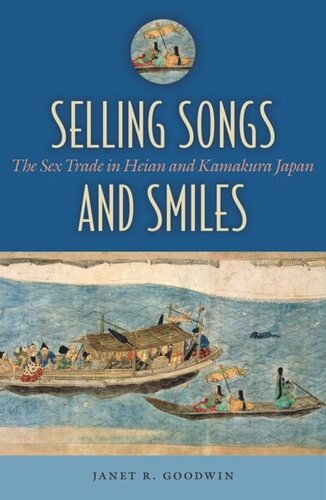

Most ebook files are in PDF format, so you can easily read them using various software such as Foxit Reader or directly on the Google Chrome browser.
Some ebook files are released by publishers in other formats such as .awz, .mobi, .epub, .fb2, etc. You may need to install specific software to read these formats on mobile/PC, such as Calibre.
Please read the tutorial at this link: https://ebookbell.com/faq
We offer FREE conversion to the popular formats you request; however, this may take some time. Therefore, right after payment, please email us, and we will try to provide the service as quickly as possible.
For some exceptional file formats or broken links (if any), please refrain from opening any disputes. Instead, email us first, and we will try to assist within a maximum of 6 hours.
EbookBell Team

0.0
0 reviewsSelling Songs and Smiles explores female sexual entertainment ("songs and smiles") during Japan’s Heian and Kamakura periods, examining the gradual construction of a transgressive identity ("prostitute") for women engaged in the sex trade. Over some four hundred years, the character and public image of sexual entertainment was shaped by growing restrictions on female sexual activity and increasingly negative views of the female body—themselves the result of socioeconomic change in society at large. Although it is possible to paint a picture of the general decline in the status of women in the sex trade, there were also ambiguities in how they were regarded by society in the very oldest extant references to them in historical sources. Using essays, diaries, legal documents, stories, and illustrated works, this original and distinctive study unravels social attitudes toward female sexual entertainers and examines changes in their trade and the treatment they received at the hands of the court, the bakufu, and religious institutions.
Compellingly argued and stylishly written, Selling Songs and Smiles challenges several prevailing interpretations, most notably the organic connection posed by scholars between shamans and sexual entertainers. Based on her exhaustive research into multiple types of primary sources, Janet Goodwin views women involved in the sex trade neither as entirely social marginals nor artisans situated within normal societal bounds. What emerges from her study is the complex and often contradictory nature of the Heian and Kamakura discourse on sexual entertainment.